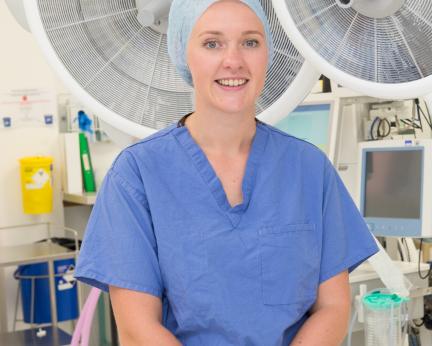When I trained to be an ODP, only a diploma in Operating Department Practice was required. However, this has changed and would-be ODPs now do a three-year BSc honours degree in Operating Department Practice. To keep in line with those who are qualified now, I completed a top-up degree.
I have also started working towards completing an MSc in health professionals education as I am looking to improve the training that staff receive within theatres.
The three qualities needed for this role are:
Caring – patients come to the theatre at their most vulnerable so you need to put them at ease, give support to their family and carers, and look after them whilst they are unconscious.
Forward-thinking – a theatre is a very fast paced, critical area to work in. You need to be able to plan ahead, anticipate difficulties and respond to incidents when they occur.
Committed – a theatre, like many clinical areas, requires staff to work 24 hours a day, 7 days a week, 365 days a year. The commitment is massive; however, it is hugely rewarding – you can instantly see the difference you make each day.





